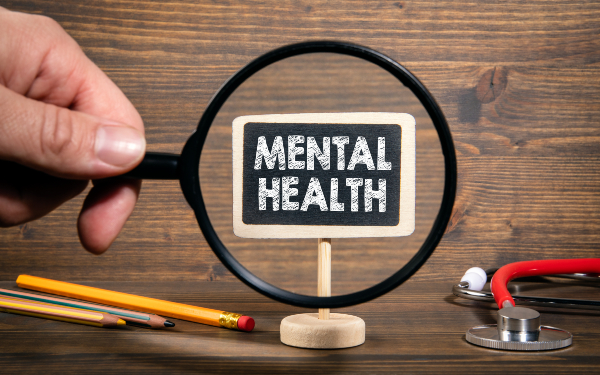
Long-awaited legislation to overhaul the “outdated” Mental Health Act 1983 (MHA) has been introduced to Parliament.
The government said the Mental Health Bill would tackle racial discrimination in care, end the inappropriate detention of people with a learning disability and autistic people and give patients a greater say in decisions over their care.
The bill’s publication fulfils a commitment in Labour’s 2024 election manifesto and is the culmination of a seven-year process that started with Theresa May’s commissioning of an independent review of the act, led by psychiatrist Simon Wessely, in 2017.
Wessely’s report, published the following year, shaped the previous government’s draft Mental Health Bill, issued in 2022. However, the Conservatives failed to issue legislation to reform the MHA before losing power in July this year.
Labour’s bill is similar to the Conservatives’ 2022 draft bill but with changes, including the acceptance of some recommendations made by a parliamentary committee that scrutinised the draft legislation.
Raising thresholds for detention and CTOs
A key plank of the bill is to raise the threshold for detention in hospital – both for assessment (section 2) and for treatment (section 3).
Section 3 of the MHA currently permits detention when a person is suffering from a mental disorder of a nature or degree that makes medical treatment in hospital appropriate, such treatment is necessary for the health or safety of the patient or the protection of others and cannot be provided without detention, and “appropriate medical treatment” is available for them. This is defined as treatment that is appropriate “taking into account the nature and degree of the mental disorder and all other circumstances” of the person’s case.
Under the bill, a person could only be detained where serious harm may be caused to the health or the safety of the patient or another person without treatment, treatment is necessary given the nature, degree and likelihood of the harm, it cannot be provided without detention and appropriate treatment is available.
For treatment to be appropriate, there would need to be a reasonable prospect of alleviating or preventing the worsening of the disorder or its symptoms.
Reducing use of detention and racial inequalities
The reform is designed to reduce the number of detentions, of which there were 52,458 in England in 2023-24, up by an estimated 2.2% on the year before, according to NHS England figures.
It is also intended, along with other measures in the bill, to reduce persistent racial inequalities in the use of the act, with black people more than three and a half times as likely to be detained as white people in 2023-24.
Similar rationales lie behind provisions in the bill to tighten criteria for community treatment orders (CTOs).
They allow responsible clinicians to discharge detained patients with the power to recall them, based on the risks of their condition deteriorating if they do not receive appropriate treatment in the community. Clinicians also place conditions on the person, designed to mitigate risks and promote treatment, with non-compliance with these taken into account in determining whether the person should be recalled.
Tightening criteria for CTOs
However, there are longstanding concerns that CTOs are used to frequently, for too long and disproportionately on black people, who were subject to the orders more than seven times as frequently as white people in 2023-24.
Under the bill, CTOs could only be used if there was a risk of “serious harm” to the health and safety of the patient or others, and consideration had been given to the “nature, degree and likelihood of the harm, and how soon it would occur”.
There would also need to be a reasonable prospect that the CTO would have a therapeutic benefit for the patient.
Limiting MHA use in relation to autism and learning disabilities
Another core reform objective is significantly reducing the number of compulsory admissions for autistic people and people with a learning disability, to combat the persistent issue of at least 2,000 being detained at any one time in England, often for long periods and without adequate care.
Under the bill, people with a learning disability and autistic people could not be detained for treatment under section 3 unless they had a co-occurring mental health condition that warrants hospital treatment.
Also, they would not be able to be made subject to a CTO solely on the basis of their learning disability or autism.
Other bill measures
Other measures in the bill include:
- Replacing the nearest relative (NR) role with that of nominated person (NP). Like the NR, the NP would provide a safeguard for the rights of the detained person, including by objecting to them being admitted or ordering their discharge. However, unlike the NR, the person would be able to appoint their NP whenever they had the capacity or competence to do so.
- Ending the use of police cells and prison as “places of safety” to which people in crisis can be removed pending assessment under the act under sections 135 and 136. This is in response to longstanding concerns that these are not suitable places for people with severe mental illness to be taken.
- Making it a legal requirement for each patient to have a care and treatment plan, which the government said would be tailored to individuals’ needs and make clear what was needed for them to progress to being discharged.
- Providing access to independent mental health advocates (IMHAs) to voluntary patients.
- Increasing safeguards for people subjected to compulsory treatment following detention in hospital.
- Shortening detention periods and making renewals more frequent.
- Changing the way that ordinary residence is determined for people receiving aftercare under section 117 of the act so that when a person is placed out of area, they will remain ordinarily resident in the area of the placing authority.
Charities welcome bill but urge investment
Charities welcomed the Mental Health Bill but said it needed to be accompanied by investment in improving the quality of care and in providing community-based alternatives to detention.
Mind said that the introduction of statutory care and treatment plans and the removal of police and prison cells as ‘places of safety’ would help create “a step change in how people are supported at times of crisis and as they live with enduring mental illness”.
Chief executive Sarah Hughes said the bill also needed to address “the systemic racism enabled by the Mental Health Act”.
‘Mental health emergency needs more than reformed MHA’
“The announcement today marks a significant moment, but we know there is more to do and questions to ask about whether this will go far enough to fix the broken system as we know it,” she added.
“The mental health emergency we are facing will need much more than a reformed act. It will demand radical and brave action from government alongside proper funding.”
The Centre for Mental Health issued a similar message, with chief executive Andy Bell saying: “The bill is an essential step towards modernising mental health services. But it must be accompanied by investment in mental health services and buildings so that people get the care and support they need when they need it in environments that are safe and therapeutic.”
The Mental Health Foundation, meanwhile, echoed Mind in highlighting the importance of tackling racial inequalities in mental healthcare.
Act has ‘driven racial disparities and made crises worse
“The original version of the act has driven racial disparities, stripped those who are sectioned of their humanity in a wholly unnecessary way, and all too often made crises worse,” said chief executive Mark Rowland.
“We particularly welcome reforms to give greater say to patients, such as granting people with severe mental health problems more control over who makes decisions for them during a crisis, banning the use of police cells as ‘places of safety’ for people experiencing a crisis, and addressing the inappropriate use of community treatment orders, which Black people were 11 times more likely to receive.”
Reform ‘must be properly resourced’
For the British Association of Social Workers, chief executive Ruth Allen said: “The Mental Health Act needs reform, and we welcome that this government has decided to make it a priority in the first parliamentary session. But as we said when the draft Mental Health Bill was published, any reform needs to be properly resourced and must be implemented in ways that promote human and social rights.
“BASW thoroughly supports the move towards an approach based upon principles relating to least restrictive intervention and therapeutic benefit, but we remain concerned that the approach taken in the bill still risks over-medicalising issues where societal factors are the dominant factors contributing to mental health distress. This bill cannot stand in place of action on public, preventive and community mental health measures for a healthier society overall.”
The Voluntary Organisations Disability Group, which represents charities providing care to disabled people, said it hoped the reform would reduce the numbers of autistic people and people with a learning disability detained in hospitals, often referred to as assessment and treatment units (ATUs).
‘A human rights scandal’
“Currently there are over 2,000 autistic people and people with a learning disability detained in ATUs against their will, long distances from home and families are unaware of what is happening to their loved ones,” said chief executive Rhidian Hughes. “It is a human rights scandal that must be urgently addressed, and this bill represents a long-awaited step in the right direction.”
He said that, alongside the bill, the government needed to invest in community alternatives to long-stay hospitals.
This message was echoed by the National Autistic Society, which said autistic people detained in hospital faced long stays and “being subjected to unnecessary restraint, overmedication, and solitary confinement”.
It said the bill must “protect autistic people’s human rights”, though added: “Changing the law is just part of what’s needed. Without investing in making sure the right support is available everywhere, autistic people will still face this inequality.”
However, concerns about the bill itself were raised by Free Our People Now, a campaign led by autistic people and people with learning disabilities, to end the use of psychiatric hospitals for them.
Right to aftercare following section 2 detention urged
It pointed to the fact that, while autistic people and people with learning disabilities would still be detainable under section 2 of the MHA, for assessment, this would not entitle them to free aftercare following discharge.
“Without the right to aftercare support and services, we are concerned that many autistic people and people with learning difficulties will continue to be on the merry-go-around of being in and out of hospital”, said Simone Aspis, campaign manager for Free Our People Now, which is supported by user-led organisation Inclusion London.







 Bournemouth, Christchurch and Poole
Bournemouth, Christchurch and Poole  Hampshire County Council
Hampshire County Council  Oxfordshire County Council
Oxfordshire County Council  South Gloucestershire Council
South Gloucestershire Council  Wokingham Borough Council
Wokingham Borough Council  Webinar: building a practice framework with the influence of practitioner voice
Webinar: building a practice framework with the influence of practitioner voice  ‘They don’t have to retell their story’: building long-lasting relationships with children and young people
‘They don’t have to retell their story’: building long-lasting relationships with children and young people  Podcast: returning to social work after becoming a first-time parent
Podcast: returning to social work after becoming a first-time parent  How managers are inspiring social workers to progress in their careers
How managers are inspiring social workers to progress in their careers  Workforce Insights – showcasing a selection of the sector’s top recruiters
Workforce Insights – showcasing a selection of the sector’s top recruiters 

 Facebook
Facebook X
X LinkedIn
LinkedIn Instagram
Instagram
The commitment of the new government to people in mental health crisis and to modernise our mental health legislation is obvious and welcome. In the announcement of its new Mental Health Bill today, the government rightly focuses on the importance of effective discharge planning and of people’s personal network as a source of vital support, information and wisdom. The recent budget indicates that the government will invest in much-needed crisis resources. What is not yet clear is whether there is a similar commitment to investing in the training necessary for practitioners from different professional backgrounds to be able to slow their practice down; listen hard to people in mental health crisis; obtain essential information about a person’s best hopes for their treatment and care; and put this at the centre of their clinical work.
All we need to know is that “appropriate treatment” is still vaguely addressed and worse left to ‘clinicians’ to determine it’s availablity. So thousands of words, platitudes and the usual suspects asking for more training and the like all simply boil down to the phrase “appropriate treatment” leaving power, coercion, forced treatment and community neglect intact. As an aside I think Nick Perry will find that rather than swerve towards “listening hard” to people in crisis the new regime will trundle on in the interest of ‘clinicians’, budget holders, bed managers, housing providers, police and the rest of the “professional’ cohort. By the way if AMHPs slowed down their practice any further they’d miss their creative contortions embedded into their stock first response to referrals as “inappropriate’.
I think Nick Perry is overly optimistic and Tahini rather too dismissive of professionals but I do agree that little will shift towards true choice to people in contact with mental health services. No psychiatrist or AMHP will ever listen to someone in crises when the priorities of those are treatment and safety, all defined by them and not people under them. When my brother was being discharged from hospital after a 4 month admission our mam as the NR asked that his medication be reduced and that he be referred to a psychotherapist. Both were rejected as not being “clinically appropriate” for his treatment and recovery. No discussion, no real listening and certainly no inclination to concede professional power. Until there is effective oversight of the totality of mental health services and proper accountability of those working in it little will change. I was an ASW, I remember the excitement and optimism about the ’83 Act. I suspect we will end up with the same status imbalances, inadequate community support and cynicism about involving families in treatment planning that we arrived at post that enthusiasm. Better training always helps but given how power is embedded in systems that mostly oppose personal choice, services always find a way to consolidate what they determine to be “appropriate treatment”. The coalition of professional interests always eventually override all others.